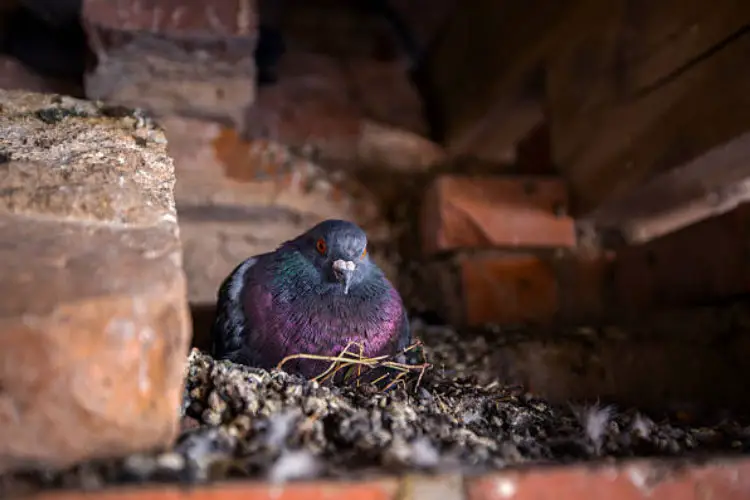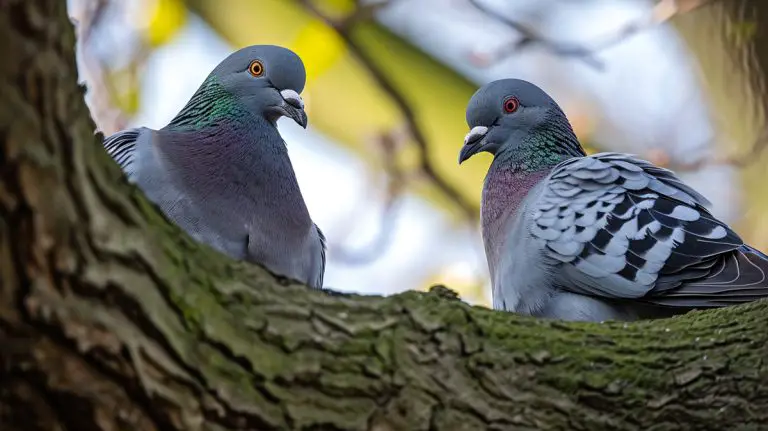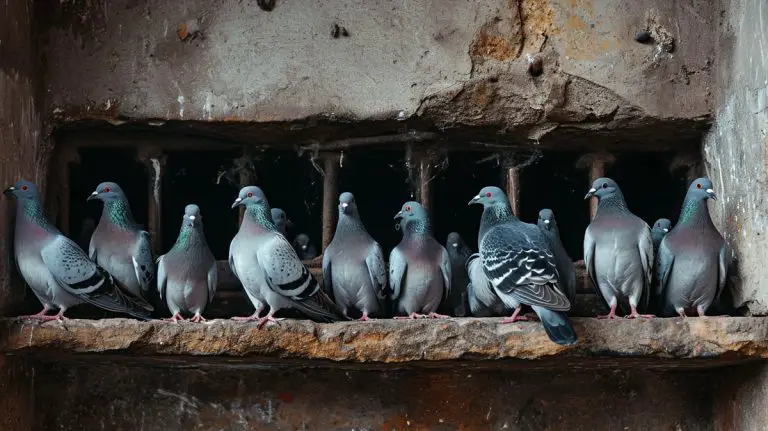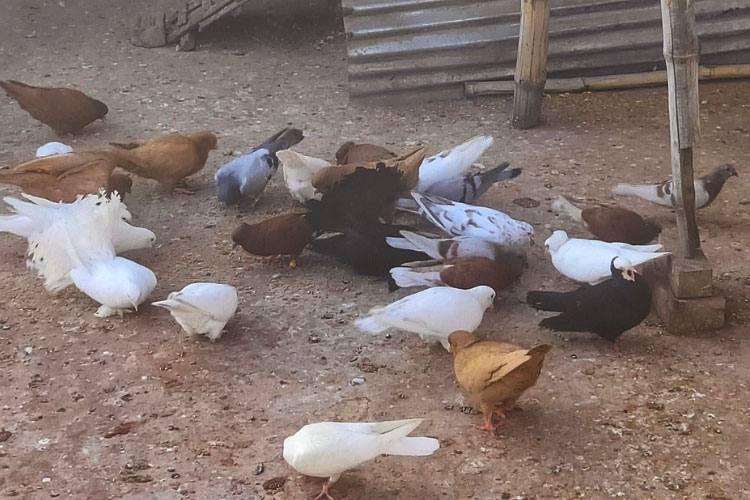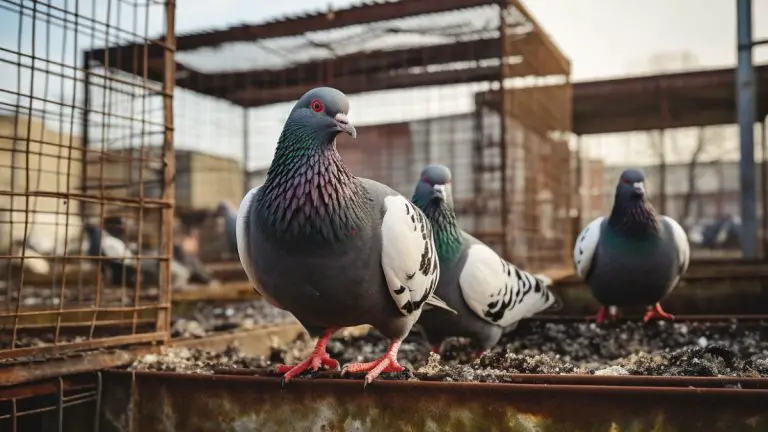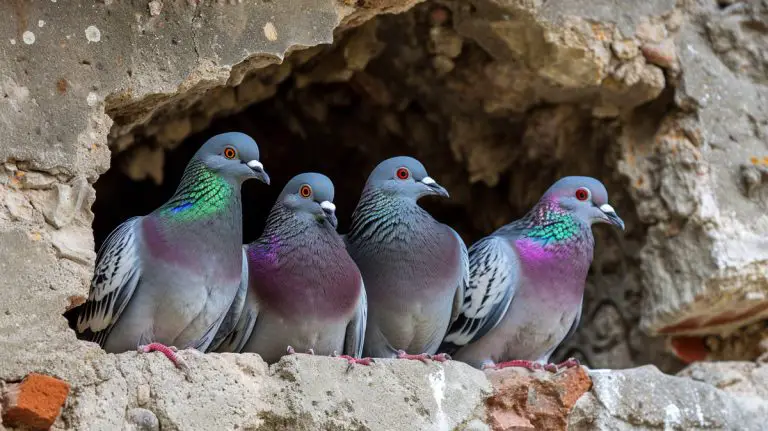Why Pigeon Eggs Not Hatching After 21 Days?
Pigeons play a significant role in the ecosystem. The egg hatch is an important aspect of this role. But sometimes pigeon eggs may not hatch even after three weeks, which is more than the regular hatching time.
So why are pigeon eggs not hatching after 21 days? In most cases, the eggs may not hatch due to poor incubation conditions, such as imbalance temperature, humidity, or airflow. Additionally, fertility problems or genetic issues with the parents can also contribute to unhatched eggs.
You will gain an in-depth understanding of the factors that affect pigeon egg hatching. Also practical tips for improving incubation conditions and preventing fertility problems will also be provided here. So, let’s start!
Pigeon Eggs Not Hatching: Causes Analysis
Several reasons may cause pigeons’ eggs not to hatch after 21 days. Let’s know the reasons well first.
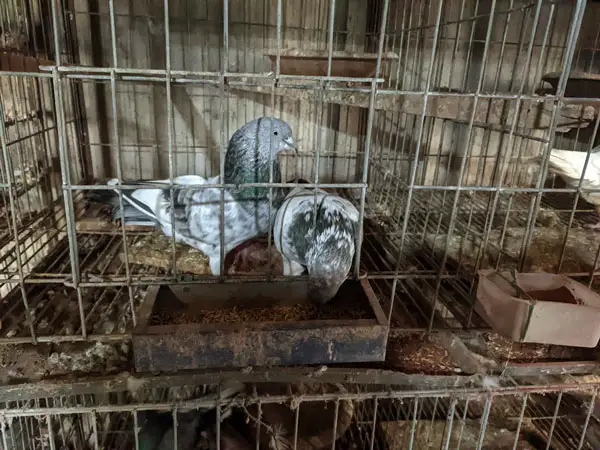
Proper Incubation Environment is Important
One of the most critical factors that can affect the hatching of pigeon eggs is the incubation conditions. Proper temperature, humidity, and airflow are crucial for ensuring the eggs hatch successfully.
- If the temperature is too high or low, the eggs may not hatch. Or else the hatchlings may be weak or have deformities.
- As per experts’ opinion, around 100 degrees Fahrenheit is good enough for pigeons’ egg hatching.
- The same is true for humidity, which should be maintained between 50% and 60% for optimal hatching.
Overall, not ensuring a proper incubation environment may occur eggs not to hatch.
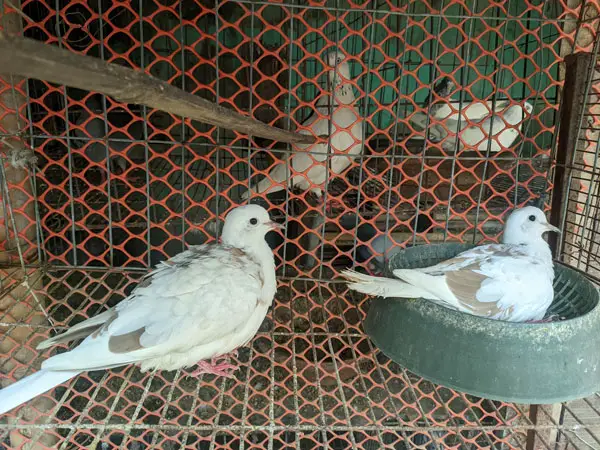
Improper Airflow Disturbs Embryonic Development
The process of hatching pigeon eggs requires a delicate balance of temperature, humidity, and airflow.
- A continuous supply of fresh air is crucial for the proper development of the embryo inside the egg.
- Insufficient air flow during incubation can have unfavorable effects on the eggs. It may result in stagnant air, which may provide a conducive environment for the growth of harmful fungi. This can eventually lead to the death of the embryos.
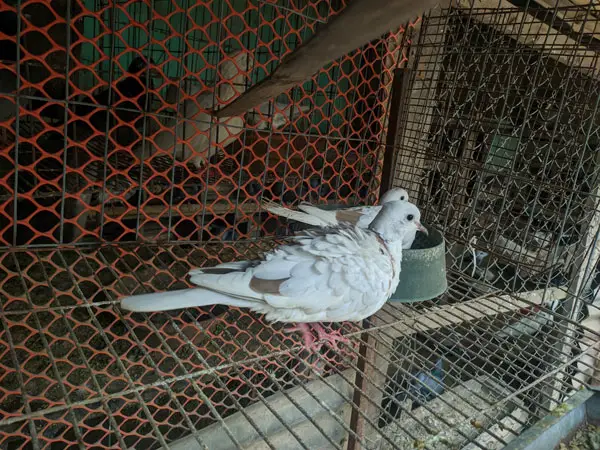
In such cases, the eggs may not hatch or will not produce healthy chicks.
- On the other hand, an excessive flow of air may cause the eggs to dry out, making it difficult for the embryos to survive.
- The air cells inside the egg play a vital role in regulating the exchange of gas. They basically provide oxygen to the developing chick and remove carbon dioxide. If the air cells shrink due to excessive drying, embryonic development may be compromised, leading to unsuccessful hatching.
Therefore, it is essential to maintain a proper balance of airflow inside the incubator to ensure the successful hatching of pigeon eggs.
Fertility Problems
Another prevalent cause for pigeon eggs not hatching is fertility problems in the birds. There can be multiple reasons for infertility in pigeons, such as advancing age, illnesses, or insufficient nutrition.
- In some cases, fertility problems may also be passed down from parents to the next generation. This shows the importance of proper care and maintenance of the pigeons to prevent such issues.
- A healthy environment along with balanced nutrition can help maintain the fertility and overall well-being of the birds.
- It is essential to monitor the fertility of breeders, to ensure the successful hatching of their eggs.
- Regular check-ups, proper nutrition, and prompt treatment of any health issues can help prevent fertility problems. Which will eventually increase the chances of successful hatching.
So, by taking proactive measures, pigeon breeders can ensure the health and vitality of their birds. It will also increase the chances of a healthy breeding period.
Proper Nutrition Ensures Healthy Reproduction
For successful egg hatching in pigeons, it is essential to provide them with a balanced and nutritious diet.
- Pigeons require sufficient amounts of protein, calcium, and vitamins to produce healthy eggs and hatchlings. The absence of these essential nutrients in the diet can lead to weak hatchlings.
- A healthy diet for pigeons should include a variety of seeds, grains, and vegetables to give them all of the vital nutrients.
- It is necessary to provide pigeons with diverse and healthy food, especially during the mating season.
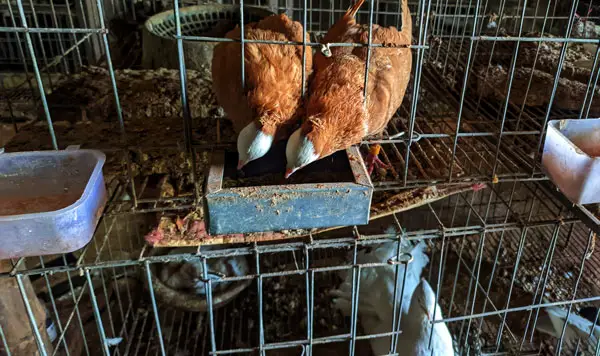
This can help promote healthy egg production and increase the chances of successful hatching.
- In addition to providing a balanced diet, it is also important to monitor the pigeons’ food intake and weight, especially during the breeding season.
- Overweight pigeons may experience difficulties in egg production and hatching. Underweight pigeons, on the other hand, may have weakened reproductive systems.
- Don’t forget to give your pigeon a balanced nutrition consisting of protein, calcium, and vitamins to avoid reproduction issues.
Diseases
The disease can also be a factor in unhatched pigeon eggs.
- Diseases such as avian influenza or salmonella can be transmitted to the eggs and cause them to not hatch.
- To prevent the spread of disease, it is essential to maintain proper hygiene and cleanliness in the pigeon cage.
- Furthermore, it is important to keep an eye out for signs of illness and seek medical care if necessary.
Pigeon Eggs Hatching: Two Unpopular Facts
There are some surprising and less-known facts about pigeon eggs and their reproduction. These are their sense of rejecting a dead egg and their multiple-hatching capability.
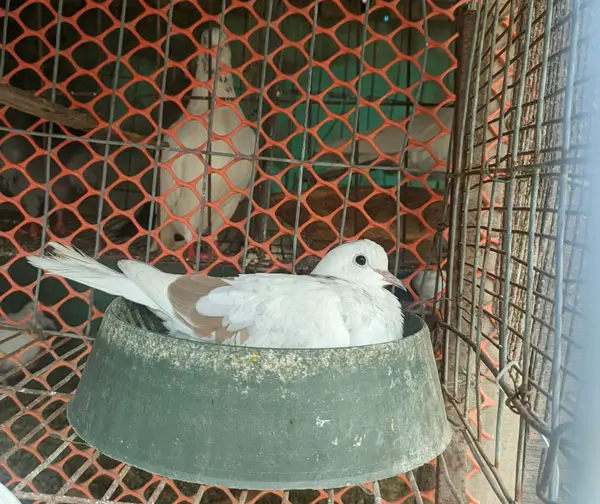
1. Pigeons are Good Observer
Pigeons have a keen sense of observation. They can detect even the slightest discrepancy in the structure of their eggs. If the egg has a flawed or weak shell, it will not likely hatch into a healthy chick.
The parents reject it and do not waste their time or resources trying to incubate it. This is a remarkable adaptation that shows just how sophisticated pigeons’ instincts can be.
2. Unique Incubation
Pigeons have a very unique and fascinating way of incubating their eggs. Unlike other bird species, pigeons take turns sitting on the eggs to keep them warm and protected. This helps to conserve energy and ensure that the eggs are kept at a consistent temperature.
In addition to this, pigeons also rotate their eggs in the nest. They do it to make sure that all sides of the eggs receive an equal amount of warmth.
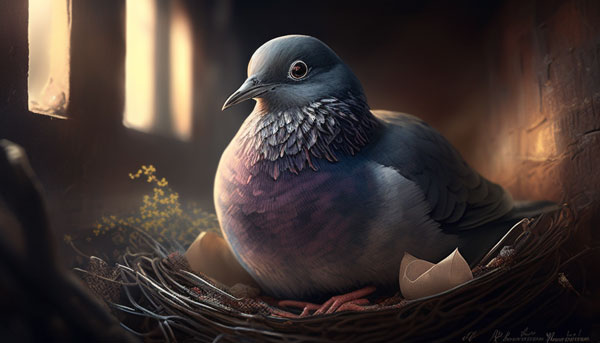
The rotation of the eggs also ensures that the yolk remains centered within the egg, which is essential for proper embryo growth and development.
Overall, the combination of taking turns incubating and rotating the eggs helps to increase the chances of successful hatching.
If you’re interested in learning more about pigeon breeding and development, you might find our articles on healthy pigeon droppings and when baby pigeons can feed themselves informative. Our article on healthy pigeon droppings explores what to look for in terms of color, consistency, and odor to ensure that your birds are healthy, while our article on when baby pigeons can feed themselves provides insights into the feeding habits and requirements of young birds. Check out these articles to learn more about the fascinating world of pigeons and how to successfully breed and care for them.FAQs
Are you looking for more information? Keep your eyes on this section.
There are no particular ways to give you an idea of whether the egg dies. However, look closely and try to find blood vessels and any sign of life. You may notice movements inside the egg.
The female pigeon usually has an idea within a short time whether the egg will hatch or not. It may leave after waiting for a couple of days. So yes, they may leave the egg unhatched.
If the eggs are not hatching after 21 days, you may monitor them for a few more days. Apart from this, the female may leave the egg. After monitoring for a few days, you may confirm that the egg will not hatch. If necessary, seek advice from a veterinarian or experienced breeder.
Conclusion
So, now you know pigeon eggs not hatching after 21 days can have multiple reasons. These may include improper incubation conditions, fertility problems, and diseases. Pigeon breeders need to provide a proper incubation environment with balanced temperature, humidity, and airflow.
Also, it is important to monitor the health and fertility of the birds with balanced nutrition, hygiene, and cleanliness to prevent the spread of diseases. In summary, taking necessary preventative measures will ensure a smooth hatching period for your pigeon.
